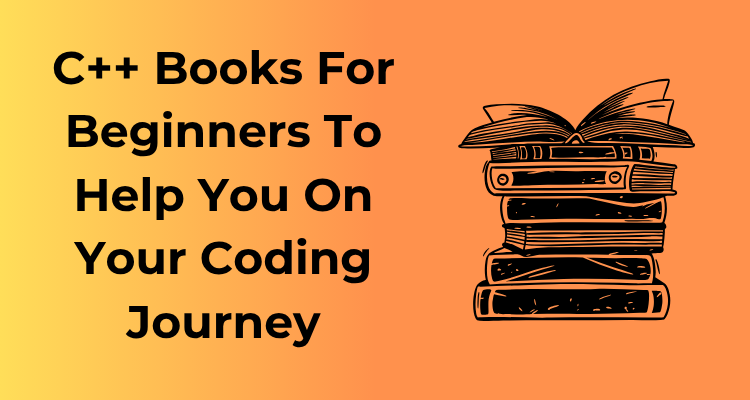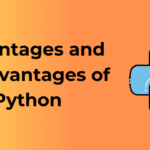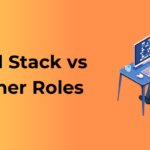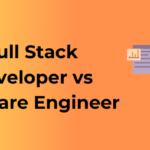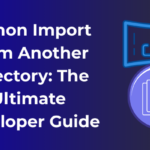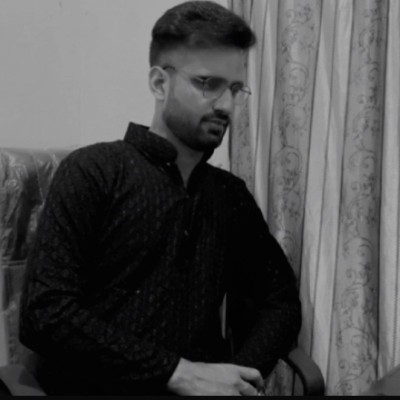Learning C++ can feel like stepping into a whole new world of coding—powerful, complex, yet incredibly rewarding. Whether you’re dreaming of building games, developing software, or strengthening your programming fundamentals, starting with the right resources can make all the difference. In this guide, we’ll walk you through some of the best C++ books for beginners that simplify learning and make your coding journey enjoyable from day one.
Breaking Myths About Learning C++: Where To Begin
So, you’ve decided to start learning C++ but feel a bit unsure where to begin? Let me tell you a little secret: you’re not alone, and it’s completely normal to feel overwhelmed by the seemingly vast and intimidating world of coding. Before diving into books and tutorials, let’s debunk some common myths about C++ and set the stage for your success.
Myth 1: C++ Is Too Hard for Beginners
Don’t let the naysayers fool you! While C++ has a steeper learning curve compared to some other programming languages, that doesn’t mean it’s impossible to learn as a beginner. The key is starting with the right resources—books that simplify concepts, explain the basics in plain English, and most importantly, don’t assume prior knowledge.
Fun fact: many programmers refer to C++ as a “foundational” language because it gives you a deep understanding of how programming languages actually work. It’s a bit like learning to drive a manual car—it might be challenging at first, but the skills come in handy everywhere.
Myth 2: You Have to Learn C Before Learning C++
This is a classic misconception. Although C and C++ share similarities, you don’t need to master C before jumping into C++. In fact, many books designed for beginners assume no prior coding experience at all, making them perfect for those stepping into the tech world for the first time.
How to Choose the Right Path as a Beginner

Getting started with the right mindset and resources is crucial. Before purchasing a book, ask yourself a few questions:
- What’s your goal? Are you learning C++ for fun, career advancement, or another specific reason? Knowing this can guide you toward books tailored to your needs.
- How do you learn best? Some people prefer step-by-step guides with exercises, while others like books that include lots of real-world examples and diagrams.
- What’s your schedule? Be realistic about how much time you can dedicate to learning. Books that offer short, digestible lessons are ideal for those with limited time.
Picking the Right First Book
Alright, with those myths busted, you’re probably wondering: “What book should I start with?” For absolute beginners, look for books that give a warm welcome into the coding world without making you feel like you need a PhD to understand what’s being taught. A few things to keep an eye out for when browsing books:
- A focus on basic fundamentals: Choose a book that teaches core concepts like variables, loops, and functions in an approachable way.
- Clear and concise language: Technical jargon can be daunting at first. Beginner-friendly books often use simple language to ease you into coding concepts.
- Practical exercises: The best way to learn is by doing. Books with coding exercises and examples will help reinforce concepts and build your confidence.
The Absolute Starter’s Guide: Books That Speak Your Language
Diving into C++ can seem like a daunting task, right? So many curly braces, semicolons, and peculiar terms like “pointers” and “inheritance” can leave anyone scratching their head. But fear not! The right book can act like a friendly guide through the wild forests of coding, turning overwhelming concepts into clear and relatable ideas.
When you’re just starting out, what you need most is a book that speaks your language—something approachable, non-intimidating, and rich in explanations. Lucky for you, we’ve got just the list of books that do exactly that.
1. C++ Primer Plus” by Stephen Prata
If you’ve been lost in technical jargon before, this book is like a breath of fresh air. It is one of the most beginner-friendly C++ books out there, offering a gentle introduction to programming concepts while building your confidence step-by-step. The chapters are structured to make even complex topics feel like they were written just for you. Don’t be surprised if this feels more like a conversation with a mentor than reading a textbook!
2. “Programming: Principles and Practice Using C++” by Bjarne Stroustrup
Wouldn’t it be cool to learn from the creator of C++ himself? In this book, Bjarne Stroustrup flexes his teaching skills to take you from “absolute beginner” to a budding programmer. What’s great about this book is that it makes no assumptions about pre-existing coding knowledge. Slow-paced, detailed, and filled with practical examples, this book feels like a one-on-one coding bootcamp with an industry legend.
3. C++ Crash Course” by Josh Lospinoso
For those of you who love getting hands-on quickly without feeling like you’re drowning in theory, this book is for you. Josh Lospinoso keeps things fun and engaging with concrete examples and challenges to solve as you go. Think of this as your co-pilot while learning the C++ language—it’s encouraging and simplifies topics that initially seem intimidating.
4. C++ For Dummies” by Stephen R. Davis
Let’s address the elephant in the room: there’s no shame in picking up a “For Dummies” book! In fact, these books are popular for a reason—they break down technical topics into digestible and often humorous chunks. “C++ For Dummies” will hold your hand through the trickiest parts, give you practical advice on avoiding common mistakes, and inject humor to keep you smiling as you learn.
Why These Books Stand Out:
- *Simple Language:* They avoid technical jargon where possible, helping you grasp the concepts without confusion.
- *Logical Progression:* Chapters are planned to build slowly from basic ideas to more sophisticated concepts.
- *Plenty of Examples:* Each book provides real-world examples and practice exercises that make learning a lot more fun.
- *Friendly Tone:* You’ll feel like you’re being taught by a friend who is genuinely invested in your learning journey.
Understanding Syntax Early: Recommendations for Grasping Basics
So, you’ve decided to dive into C++ programming—fantastic choice! Before you start building epic projects and solving complex problems, one thing is absolutely essential: *understanding the syntax*. Think of syntax as the foundation of a house. Without it, the structure simply can’t stand! Let me walk you through some excellent book recommendations to help you grasp the basics of C++ syntax with confidence and ease.
Why Syntax Matters
Syntax is like the grammar of a language—it’s how you organize code so it makes sense to both the computer and future humans (like yourself) who will review it. If you skip mastering syntax early, trying to write functional, clean, and error-free code later will feel like climbing a massive mountain with no hiking boots. Let’s not make that mistake, shall we?
Beginner-Friendly Books That Focus on Syntax
To make learning syntax less overwhelming and more approachable, you’ll want books that offer clear explanations, easy-to-grasp examples, and plenty of practice opportunities. Below are some absolute gems:
- “C++ Primer Plus” by Stephen Prata – This book is a classic for beginners. It introduces core concepts and syntax step-by-step, peppered with exercises and real-world examples to help solidify your understanding. Each concept is broken down into digestible parts, ensuring you never feel lost.
- “Programming: Principles and Practice Using C++” by Bjarne Stroustrup – If anyone knows C++, it’s the person who invented it! This book starts from the basics, including syntax, and leads you through writing simple yet effective programs. Pro tip: Don’t rush—take your time; this book is meant to be savored.
- “C++ for Dummies” by Stephen Randy Davis – Don’t let the title fool you! This book simplifies tough topics like syntax and loops into something so straightforward, even someone completely new to programming can follow along. Bonus: It’s full of relatable examples you’ll actually enjoy reading.
How These Books Help You Master Syntax
Diving into syntax doesn’t have to be dry or tedious. A good book will explain terms like variables, data types, loops, and conditional statements in ways that feel intuitive. These tools are the building blocks of every program you’ll write, so mastering them now will save you countless hours of debugging in the future. Trust me, future you will thank you later.
As you read through a book, make sure to code along with the examples on your computer. Practicing while you learn helps you retain information and gets your fingers used to typing out proper syntax. The earlier you make this a habit, the better!
Tips for Grasping Syntax Quickly
- Write Code Daily: Pick small, manageable examples from the books listed above and write the code out yourself. Don’t just copy-paste!
- Understand Errors: Learning to troubleshoot errors is just as important as learning syntax itself. Use the books’ examples to see how syntax mistakes are fixed.
- Online Sandboxes: Websites like Replit or Code::Blocks allow you to practice syntax in real-time without needing to set up complex software.
Fall in Love with the Basics!
It might feel tempting to zoom past basic syntax and jump straight into building something big and exciting, but resist that urge! Think of syntax as your secret weapon—it’s the skill that sets a solid programmer apart from one who’s constantly battling their code. By investing your time in these fantastic books and sticking to the tips above, you’ll set yourself up for smooth sailing as you advance in your C++ journey.
Visual Learning Aids: Best Books with Practical Examples

Isn’t it just easier to grasp complex concepts when you can actually see how things work? If you’re a visual thinker or someone who learns best through hands-on applications, then this section is perfectly tailored for you! C++ can sometimes feel like an abstract beast, but plenty of books out there simplify it by making learning visual and engaging through practical examples.
Why Visual Learning Works for Coding?
Before diving into recommendations, let’s talk about why visual learning resonates with so many programmers. Think about it: would you rather be spoon-fed theoretical jargon, or be walked through clear, step-by-step examples with detailed illustrations? Visual learners thrive on seeing concepts in action – the flow of code lines on the screen, diagrams explaining memory allocation, or colorful charts showing how objects interact. By understanding how things work visually, you’ll absorb the material faster and remember it longer.
Top C++ Books That Nail Visual Learning
If you like to learn by doing (and let’s be honest, who doesn’t?), these books offer rich, example-driven content paired with visual aids. Here are the top contenders:
- “Starting Out with C++: From Control Structures through Objects” by Tony Gaddis
This book truly takes the visual learning approach seriously. It provides a clear starting point for beginners, with tons of diagrams, code snippets, and flowcharts. Gaddis uses examples from real-world scenarios to help make the concepts stick. It’s like having a personal tutor walking you through every concept carefully! - “C++ Primer Plus” by Stephen Prata
When it comes to combining visuals and practice exercises, Prata’s illustrative examples in this book make it a winner for beginners. While it’s a detailed read, it includes generous amounts of code flow diagrams and real-time problems to solve. It shows you not just the ‘how’ but the ‘why’ behind each concept. - “Programming: Principles and Practice Using C++” by Bjarne Stroustrup
Okay, let’s face it – any beginner tackling C++ should give a nod to its creator, Bjarne Stroustrup. While this book is designed for beginners and intermediate learners, its practical examples focus heavily on real-life application. Plus, detailed illustrations and lifelike problem-solving scenarios make grasping tougher concepts a breeze.
Pro Tips to Maximize Visual Learning
Here are some ways you can supercharge your learning with these books:
- Write out examples: Don’t just read a code example; type it out! Seeing it come to life on your own software is immensely helpful.
- Create flowcharts: Try making your own charts to follow the decision paths of the examples in the book. It’s a fun and creative way to engage with the material.
- Join a peer group: If possible, study alongside other beginners. Sharing screen diagrams or comparing notes can make the learning experience more interactive.
Stepping into Problem Solving with Friendly Books
So, you’re ready to level up and tackle some real problems using C++? Great! It’s not just about understanding syntax or memorizing keywords—problem-solving is where your coding skills truly come alive. And don’t worry if this sounds intimidating; with the right, approachable books by your side, you’ll make steady progress and have fun while doing it.
Why Problem Solving Matters in Your Learning Journey
Learning problem-solving is vital for any programmer. It teaches you how to break down complex tasks into manageable steps, design efficient solutions, and, most importantly, drives home the relevance of C++ concepts in real-world scenarios. The best part? As a beginner, there are many books that gently guide you into this mindset with lots of examples and practical advice.
What Makes a “Friendly” Book for Problem Solving?
A friendly book doesn’t overwhelm you with jargon or assume you already know everything. Instead, it welcomes you into the problem-solving space with simple language, relatable metaphors, and hands-on exercises. Look for books that use a conversational tone, sprinkle in humor, and give plenty of space to explore ideas at your own pace. Plus, they feature lots of example problems that gradually increase in complexity while reinforcing key concepts.
Top Picks to Start Solving Problems
- “Programming Problems Using C++ by S.K. Srivastava and Deepali Srivastava” – This incredible book introduces novice programmers to small, solvable problems in a logical sequence. Its step-by-step approach really helps beginners stay engaged while picking up crucial skills in loops, conditionals, and algorithms.
- “The C++ Programming Language: Simple Exercises for Beginners Edition” – Designed specifically with beginners in mind, this book offers digestible problem-solving exercises alongside explanations tailored to help you think like a programmer.
- “Practice Makes Perfect: Mastering Problem-Solving in C++” – This one delivers exactly what the title promises! By focusing on small but challenging example problems, the book provides learners with ample opportunities to practice—and it’s written with a touch of humor.
Books to Consolidate Core Concepts Step-by-Step
Once you have a basic grasp of C++ syntax and some introductory experience with simple programs, the next logical step is to solidify your core concepts. This stage is crucial because it bridges the gap between being a beginner and moving towards intermediate skills. Thankfully, some amazing books are designed specifically to guide you through this middle ground, piece by piece. Let me walk you through some noteworthy picks!
Why Consolidating Core Concepts Matters
Programming in any language, including C++, relies heavily on **getting the foundations strong**. Concepts like understanding how memory works, pointers, object-oriented programming (OOP), and algorithm efficiency form the backbone of advanced coding. Without these, progressing further can feel like building on shaky ground. Picking books that emphasize mastering the “why” behind these concepts step-by-step will not only save headaches down the road but also make you a confident programmer.
Must-Read Books for This Stage
- “Accelerated C++: Practical Programming by Example” by Andrew Koenig and Barbara E. Moo:
This book is often recommended for those who want to move beyond the basics but without getting overwhelmed. What’s special about it? It teaches C++ concepts in a structured and refreshingly direct way. Instead of beginning with low-level, theoretical material, it introduces you to examples you can relate to while weaving the core concepts seamlessly into the mix. - “C++ Primer” (5th Edition) by Stanley B. Lippman, Josée Lajoie, and Barbara E. Moo:
If you’re looking for a gradual, in-depth treatment of important C++ topics, this is your go-to. It’s detailed, beginner-friendly, and progresses step-by-step so that abstract ideas become tangible. It focuses heavily on explaining fundamental topics like classes, templates, and the standard library. If there’s one book you take out of this section, it might just be this one! - “Programming: Principles and Practice Using C++” by Bjarne Stroustrup:
Written by the creator of C++ himself, this book is like getting guidance straight from the source. While it might seem dense at first, Stroustrup balances accessibility with depth, inspiring you to appreciate not just “how” but “why” C++ does what it does. This one’s not a sprint but a stepwise journey every serious programmer should take.
How to Work Through These Books
Once you’ve picked a book that fits your learning style, approach it systematically:
- Start with one chapter or section at a time. Don’t rush; focus on truly absorbing each topic before moving forward.
- Work through every example provided and challenge yourself by modifying the code to see what happens.
- Stop and reflect: why did that function work? Why did a pointer behave the way it did?
Remember, learning C++ concepts is rarely about memorization—it’s about experimentation and understanding. Don’t worry if it feels tough at first; it’s part of the process!
Choose the Right Guidance: Authoritative Books That Mentors Love
Ah, the world of C++—a language so rich and versatile, yet at times, tricky to navigate for beginners. But fear not! One of the secrets to mastering C++ is choosing the right guidance. And, as it turns out, *professional mentors love certain books for a reason.* These aren’t just books; they’re trusted companions on the coding journey. So, let’s talk about how picking the right book can make all the difference and explore some of the best choices that experts swear by.
Why Picking the Right Authoritative Book Matters
When stepping into the realm of C++, you’ll quickly realize there are hundreds of books out there. But not all are created equal! Some are outdated, while others may overcomplicate simple concepts. The key is to find books that strike the perfect balance—resources written by *well-respected authors* who have been there, done that, and know exactly what new coders need.
Think about this: The advice from an experienced author is like having a mentor by your side, sharing hard-earned insights while holding your hand through challenges. You’ll skip frustrating dead ends and instead gain clarity where confusion often reigns.
Books That Have Stood the Test of Time
Mentors in the programming world often recommend books that are not only comprehensive but also timeless in their approach. Here are a few staples that you’ll find many swearing by:
- “C++ Primer” by Stanley B. Lippman, Josée Lajoie, and Barbara E. Moo: This book is a treasure trove that guides you from the basics to more intricate details, all while maintaining a clear and enjoyable narrative. It’s a favorite among experienced developers who admire its depth and ability to cater to beginners.
- “Programming: Principles and Practice Using C++” by Bjarne Stroustrup: Imagine learning directly from the creator of C++ himself! This book feels like having Stroustrup whispering key programming principles in your ear. It’s focused on modern practices and foundational ideas, making it a winner for those who want a masterclass experience.
How to Identify a Reliable Mentor-Loved Book
It’s not always easy to tell which books are truly authoritative. When browsing potential resources, look for these markers:
- The author’s credentials: Are they industry veterans or academics with practical experience?
- Detailed yet clear explanations: Good books don’t skim over essential topics. They explain the “why” behind the “how.”
- Real-world examples: Books admired by mentors prioritize showing how C++ is applied in practical scenarios rather than just theory.
- Up-to-date content: C++ keeps evolving, so ensure your pick covers recent standards like C++17 or C++20.

